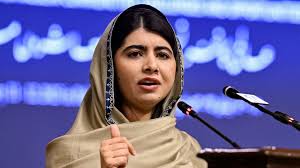Nobel Peace Prize winner Malala Yousafzai has urged the international community to address the global crisis in girls’ education. She stressed the critical role educated women play in creating prosperous societies.
“We must acknowledge the challenges we face,” Malala said at the “International Conference on Girls’ Education in Muslim Communities: Challenges and Opportunities” on Sunday. “This crisis is costing our economy hundreds of billions in lost growth. It harms the health, safety, and security of our people.”
The two-day conference, held in Islamabad, brought together global experts and educators. They discussed barriers to girls’ education in Muslim-majority countries. Pakistan itself faces a dire education crisis, with over 22 million children out of school. This is one of the highest numbers in the world, according to government data.
Malala emphasized that societies cannot flourish without addressing this education crisis. She added, “We are failing to uphold Islam’s core value of seeking knowledge.”
She called the conference an encouraging first step but warned it would only be meaningful with honest discussions. “We must address the worst violations of girls’ education rights,” she said.
The Afghan Taliban government, known for its severe restrictions on women, declined to participate in the event. Pakistan had invited officials from Kabul, but no representatives attended. Since reclaiming power in 2021, the Taliban has implemented strict laws, described by the UN as “gender apartheid.” Women and girls in Afghanistan have been excluded from secondary schools, universities, and many jobs.
Saudi cleric Muhammad Al Issa, secretary general of the Muslim World League, also spoke at the summit. He said, “Religion provides no justification for preventing girls from going to school.”
Malala highlighted the struggles faced by girls in countries like Yemen and Sudan. Many live in extreme poverty, endure violence, and are forced into early marriages. “In Afghanistan, an entire generation of girls has been robbed of their future,” she said. “This conference must address the education of Afghan girls.”
She noted that Afghanistan remains the only country in the world where girls are completely barred from education.
Malala herself survived a life-threatening attack in 2012 by the banned Tehreek-e-Taliban Pakistan (TTP). At the time, she was a schoolgirl campaigning for girls’ education rights. The attack occurred during a period of intense militancy in the region, fueled by the war between NATO forces and the Afghan Taliban.
After the attack, Malala was evacuated to the UK. At the age of 17, she became the youngest recipient of the Nobel Peace Prize for her activism. Since then, she has become a global advocate for girls’ education and women’s rights.


